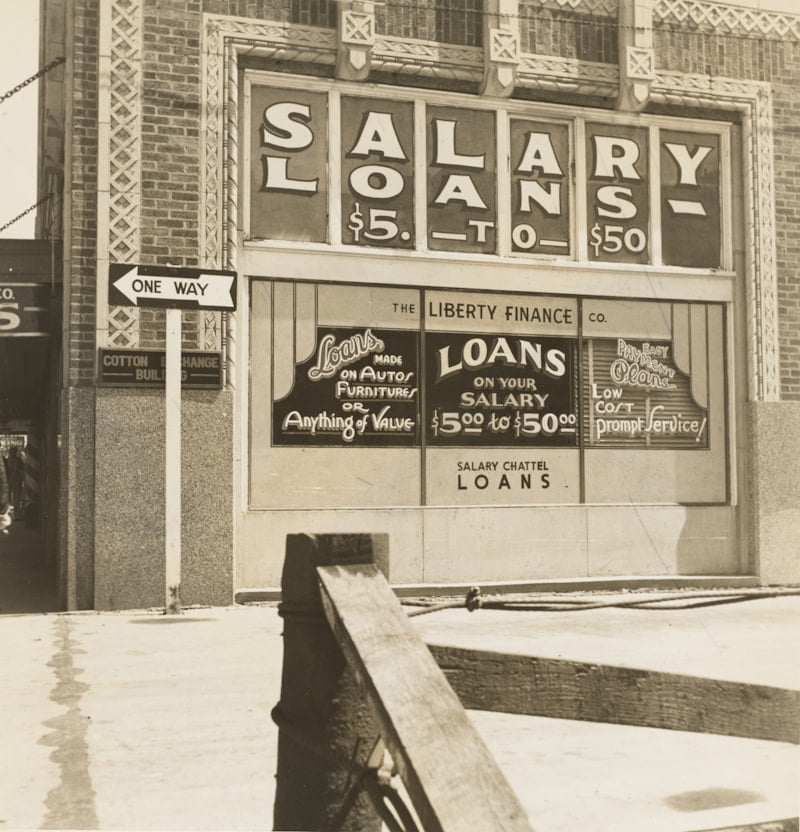What Are the Risks of Taking Out a 401(k) Loan?

Another concern is repayment. 401(k) loans typically have to be repaid within five years, unless they are used for a home purchase. If you leave your job for any reason, the loan may become due immediately, usually within 60 days. Failing to repay on time can result in the loan being treated as an early withdrawal. This incurs income taxes and potentially a 10% penalty if you’re under 59½ years old.
Furthermore, borrowing from your 401(k) can become a habit that disrupts your long-term savings strategy. It’s tempting to see the account as a source of quick cash rather than a retirement nest egg. This can undermine your financial security in the future, especially if unexpected expenses or emergencies arise.
While a 401(k) loan can offer short-term financial relief without impacting your credit score, it’s essential to weigh the long-term consequences. Consider alternative options like budget adjustments or low-interest personal loans before tapping into your retirement savings. Protecting your financial future should remain a priority, ensuring your retirement plans stay on track without compromising your long-term goals.
Unlocking Your Retirement: The Hidden Dangers of 401(k) Loans
Planning for retirement involves navigating various financial tools, and one common option is the 401(k) plan. While these accounts offer a valuable way to save for the future, they also come with a potential pitfall: 401(k) loans. Many people see their 401(k) as a savings cushion, easily accessible in times of need. However, borrowing from it through loans can pose significant risks that may jeopardize long-term financial security.
One of the initial attractions of a 401(k) loan is its apparent convenience. Unlike traditional loans, there’s no credit check involved, and the interest rates are typically lower. This can make it seem like a quick and easy solution for urgent financial needs, such as paying off high-interest debt or covering unexpected expenses.
Yet, beneath this surface convenience lie several hidden dangers. Firstly, withdrawing funds from your 401(k) means reducing your retirement savings. The amount borrowed is temporarily taken out of your investment portfolio, potentially missing out on market gains during that period. This can impact the overall growth of your retirement nest egg, especially if the borrowed funds aren’t replaced promptly.
Moreover, if you leave your job for any reason, whether by choice or not, the loan must be repaid immediately. Failure to do so can result in penalties and taxes on the outstanding balance, further diminishing your retirement funds. This sudden financial burden can catch many borrowers off guard, leading to additional stress and financial strain.
Additionally, there’s a psychological aspect to consider. Borrowing from a 401(k) can create a false sense of security, masking underlying financial issues that need more sustainable solutions. It’s essential to assess whether borrowing is a temporary fix or a symptom of larger financial mismanagement that requires a different approach.
While 401(k) loans can offer a temporary financial lifeline, they come with significant risks that can impact long-term retirement plans. Before considering a 401(k) loan, it’s crucial to weigh the potential consequences carefully and explore alternative options. Protecting your retirement savings requires foresight and planning beyond immediate financial needs, ensuring a secure financial future.
Financial Trade-Offs: How Borrowing from Your 401(k) Could Cost You More
Imagine this: your 401(k) is like a sturdy tree, steadily growing and providing shade for your future. When you borrow from it, it’s akin to plucking off some branches for immediate needs. Sure, you get what you need now, but it alters the tree’s growth potential.
First off, the money you borrow from your 401(k) is no longer invested in the market. That means it misses out on potential gains. Markets are like seasons – they have ups and downs, but over time, they generally trend upwards. By taking money out, you’re skipping potential growth periods. It’s like missing the chance to harvest ripe fruit because you picked it too early.
Moreover, borrowing from your 401(k) isn’t free. You typically have to pay it back with interest, albeit to yourself. However, this interest isn’t just a few pennies. It’s more like paying rent on the money you borrowed. Money that could have been working for you in the market is now paying rent to yourself. It’s like paying rent on a house you own – money out the door that doesn’t come back to you directly.
And here’s a kicker – if you leave your job before paying back the loan, it could trigger a forced repayment. If you can’t repay in time, it could be treated as a withdrawal. That means taxes and penalties. It’s like planting a garden but having to uproot it prematurely – all that effort wasted.
Lastly, borrowing from your 401(k) may also disrupt your long-term retirement savings. You’re setting back your future self by borrowing from what’s essentially your nest egg. Retirement is like a marathon – you need endurance and steady pacing. Borrowing from your 401(k) is like sprinting in the early miles – it might help in the short term, but it could exhaust your resources later on.
So, before dipping into your 401(k), weigh the trade-offs carefully. Sometimes, other financial tools might serve you better without disrupting your retirement plans.
Risk vs. Reward: Assessing the Long-Term Impact of 401(k) Loans
Imagine your 401(k) as a reservoir of savings, carefully built over the years to secure your retirement. The allure of a loan from this fund lies in its accessibility and convenience. It offers a lifeline during financial emergencies or for significant expenses like buying a home or funding education, all without the stringent credit checks typical of traditional loans.

Moreover, 401(k) loans come with specific terms and conditions. Typically, they must be repaid within five years, with interest payments that, while paid back to yourself, can disrupt your regular contributions and the compounding effect on your retirement savings. Failure to repay the loan within the stipulated time frame could trigger penalties and taxes, further denting your financial strategy.
In essence, the decision to take a 401(k) loan boils down to a careful evaluation of risks and rewards. It’s a balancing act between immediate financial needs and the long-term security of your retirement nest egg. Before proceeding, it’s advisable to consult with a financial advisor to assess your specific situation, explore alternative funding options, and fully grasp the implications on your retirement planning.
Navigating financial decisions like 401(k) loans requires foresight and understanding of the potential impacts. By weighing the risks against the rewards, you can make informed choices that align with your long-term financial goals and aspirations.
Borrowing from Tomorrow: Why 401(k) Loans Should Be a Last Resort
Imagine your retirement savings as a fortress, built over years of hard work and careful planning. Your 401(k) is not just a fund but a shield against financial uncertainty in your golden years. However, there may come a time when unexpected expenses or urgent financial needs tempt you to tap into this reserve. This is where 401(k) loans come into play, offering a seemingly easy solution. But before you make that decision, it’s crucial to understand why experts often advise against treating your retirement savings like a piggy bank.

Moreover, 401(k) loans often come with strict repayment terms. While you borrow from yourself, you’re not exempt from paying it back with interest. This interest, typically lower than commercial rates, still means you’re paying to use your own money. It’s a cost that adds up, eating into your future returns and potentially reducing your retirement nest egg.
Additionally, there’s the risk of default. If you leave your job or face unexpected financial hardship, your 401(k) loan might need to be repaid immediately. Failure to do so could result in penalties and taxes, further diminishing your savings. It’s a gamble that could jeopardize your financial stability when you need it most.
Instead of viewing your 401(k) as a quick-fix solution, explore other avenues first. Emergency funds, personal savings, or even low-interest personal loans might be more suitable options. These alternatives allow your retirement savings to continue growing undisturbed, ensuring a secure future when you eventually reach retirement age.
While borrowing from your 401(k) may seem like a viable option in times of need, it should be considered a last resort. Protecting your retirement savings is crucial for long-term financial security. By understanding the implications and exploring other financial resources, you can make informed decisions that safeguard your future wealth.
